JOURNAL OF HEALTH & BIOMEDICAL LAW BLOG
JHBL frequently posts blogs submitted by journal staff members and editors concerning a variety of topics relevant to the health law community. To read a blog, click on the blog titles below. For more information, or to submit a blog post for consideration, please contact Online Editors Jeffrey Weinstein (jweinstein@su.suffolk.edu) and Emily Mariano (emariano@su.suffolk.edu).

Competitive Health: The Heart Data Wars and Their Legal Implications for Tomorrow’s Wearable Technology and Health Data
By Camil Miki Zaganjor, JHBL Staff Member Roughly 130 million adults in the United States, about 39% of the population, use wearable devices that track the user’s heart rate.[1] In addition, the vast majority of people at risk for cardiovascular disease approve of...
Science in the Courtroom: Protecting the FDA’s Authority to Interpret Scientific Data and Issue Nationwide Regulations to Support Gender Justice
By Rose Tracy, JHBL Staff Member Introduction The clash between scientific expertise and political considerations is nothing new in the United States.[1] However, tension has risen substantially after the decision in Dobbs v. Jackson Women’s Health Organization,...
The Invisible Enemy: How Date-Rape Drugs Threaten an Epidemic of Ever-Growing Victims
By Esther Teresinski, JHBL Staff Member Date rape drugs, also known as roofies, have threatened individuals’ safety since the 1990s.[1] Yet, recent upticks in documented cases of date-rape drug use in the Boston area threaten the onset of a public health crisis and...
Tackling CTE: Proactive, Not Reactive Steps to Ensure Athlete Safety Postgame
By Anya Skae, JHBL Staff Member Chronic Traumatic Encephalopathy (hereinafter CTE) is a degenerative brain condition associated with repeat head injuries, particularly in contact sports, and characterized by the accumulation of abnormal proteins in the brain leading...
Sanity vs. Speech: Can lawmakers balance social media effects on children’s mental health with their First Amendment rights?
By Lily Strenberg, JHBL Staff Member Instead of playing with blocks, kids are given iPads and computers as early as infancy to keep them occupied. Due to this uptick in screen time for minors, lawmakers are interested in regulating what children are seeing on social...
Per- and Polyfluoroalkyl Substances (PFAS) In Your Drinking Water? The Environmental Protection Agency May Have A Solution.
By Avery Reavis, JHBL Staff Member Introduction: Per- and Polyfluoroalkyl Substances (“PFAS”), also known as “forever chemicals,” are man-made chemicals that have been linked to various health risks, including cancer.[1] Recent research has shown that PFAS are...
The Cost of Being Queer: Increased Fertility Expenses for Same-Sex Couples Having Biological Children
By Nicole Moschella, JHBL Staff Member Introduction In the United States, over 20 million Americans identify as LGBTQ+ and one-third are raising children.[1] Assisted Reproductive Technology (hereinafter “ART”) makes it possible for same-sex couples, single people,...
Mental Health and Stress Reducers: Unregulated and Available to all, How Fermented Foods are the New Mental Health Drug
By Izadora Lenna, JHBL Staff Member Introduction Fermentation has been used as a cooking technique through the ages. Although it is a technique which has been widely used, its benefits are continuing to grow. Fermented foods with lactobacillus are an innovative and...
Pharmacy Deserts: A Growing Public Health Crisis Affecting the Health of Marginalized Communities and Their Access to Pharmacy Services
By Zachary Klemm, JHBL Staff Member Introduction Outrage and concern over the recent closure of a Walgreens pharmacy in Roxbury, MA—the fourth local Walgreens to close since 2022—permeates throughout that Boston community.[1] In response, Reverend Miniard Culpepper...
Price Transparency: Complications in Providing Clear Costs to Patients
By Rafi Kassamani, JHBL Staff Member Price transparency in the U.S. healthcare system has always negatively impacted consumers.[1] For this reason, federal and state laws now require healthcare providers to be transparent about costs for their services.[2] Hospitals...
Transforming Healthcare: Navigating the Artificial Intelligence Revolution and the Imperative for Regulations
By Luis Gutierrez, JHBL Staff Member Introduction Artificial Intelligence (“AI”) has emerged as a game-changer in the rapidly evolving healthcare landscape, revolutionizing how we approach diagnosis, treatment, and patient care. However, this transformative journey...
Sewage-Infused Drinking Water: The Need for Multi-State Infrastructural Changes to Prevent Sewage Pollution in Large Massachusetts Cities
By Bryanna Greenwood, JHBL Staff Member Half a million residents in Massachusetts depend on the Merrimack River (“River”) for their drinking and tap water.[1] However, many are unaware their drinking and recreational water is possibly contaminated with human...
The Health and Safety Concerns Facing Manual Laborers as Temperatures Continue to Increase with No End in Sight
By Karla Fuentes, JHBL Staff Member Increased temperatures are the new norm around the world due to climate change.[1] Since the 1800’s, temperatures across the globe have increased.[2] The number of people that are, and will, be affected by the climbing...
Too Hot to Ignore – Environmental Activism through Human Rights Related Health Violations and the Push for Recognition of Ecocide
By Jordon Fogel, JHBL Staff Member “We are on a highway to climate hell with our foot still on the accelerator.” ~ U.N. Secretary-General Antonio Guterres[1] Global ecological regulation is challenging to implement and enforce. Though there is a general...
More than Just a Change in Diet: How Food Allergies Can Create Large Financial Burdens on those Affected
By Nicole Dunn, JHBL Staff Member More than 100 million people experience allergy symptoms in the United States each year.[1] Among these allergies, the number of reported food allergies are specifically increasing.[2] For example, the number of children with...
Caffeine and Consequences: How Energy Drink Companies Market to Adolescents and the Negative Impact This Business Practice Has on Cardiovascular Health
By Dante Driscoll, JHBL Staff Member Recently, the energy drink market has seen an increase in the number of brands entering the market, many of which utilize marketing directed towards adolescents.[1] In addition to the considerable amount of sugars or artificial...
Should it be a luxury to afford life-saving medication?
By Noel De León Sifonte, JHBL Staff Member About 32 million Americans have a food allergy, which is a common trigger for anaphylaxis, a severe allergic reaction that is potentially fatal.[1] Epinephrine is the first line of defense against anaphylaxis, and...
Xenotransplantation: How Animals are Saving Human Lives Through Surgery
By Whitley Daniels, JHBL Staff Member The medical world is always evolving to fit the needs of patients across the globe. Though animals can be kept as pets or raised for human consumption, medical doctors are utilizing animals to provide healthy organs and tissues...
Strokes from Smog: Studies Show Increased Risk of Strokes From Even Short-Term Exposure to Air Pollutants
By Rachel Clausen, JHBL Staff Member For many days this past summer, a thick smog from the raging forest fires in Ontario and Quebec covered the Northeast of the United States.[1] These fires have continued to plague the Northern United States into the fall, causing...
A 32-Hour Workweek to Transform Mental Health in the Legal Profession
By Jose Carapaica, JHBL Staff Member The mental health crisis within the legal profession is a matter of deep concern, with far-reaching implications for both lawyers and the broader legal system. A nationwide study conducted in 2016 by the National Library of...
The Vicious Effects That Mental Health Can Have on The Physical Health of an Incarcerated Individual
By Anna Browning, JHBL Staff Member It is well known that physical diagnoses and limitations can negatively impact a patient’s mental health.[1] However, it may surprise some that undue anxiety or depression can be the cause behind developing a serious physical health...
Insuring Athletes or Ensuring Injuries? What does the NCAA shift in injury prevention to injury assistance suggest about the future treatment of student-athlete injuries?
By Hannah Bilton, JHBL Staff Member Everyone loves a good comeback story, especially the National Collegiate Athletic Association (“NCAA”), it seems. The NCAA is an organization that governs most intercollegiate athletics across three divisions (I, II, III), having...
Stimulants Stimulating a Nationwide Medication Crisis: The Ongoing Adderall Shortage
By Emma Bilton, JHBL Staff Member For many patients, inaccessibility to prescription medication can lead to catastrophic consequences. Unfortunately, this is a reality for many Americans today. Since October of 2022, over 41.4 million Americans are facing a medical...

The Chopshop: How The Northern District Of Texas Has Become The Venue To Gut The Affordable Care Act
Since the Affordable Care Act (“ACA”) was passed on March 23, 2010, it has been subject to copious challenges in federal courts, which have challenged everything from the constitutionality of the program to the specifics of how medications are distributed.[1] But litigants have discovered a key advantage that will weigh the scales of justice in their favor: The Northern District of Texas. Continue Reading The Chopshop: How The Northern District Of Texas Has Become The Venue To Gut The Affordable Care Act

Opioid Crisis: Feds Tell Big Pharma Companies They Have a Responsibility to Screen
This blog concerns the recent $650 million judgment against pharmacy giants CVS Health, Walgreens, and Walmart, for their role in the opioid crisis. These pharmacies argue that they have minimal responsibilities to screen for suspicious prescriptions, but the DOJ says otherwise. Continue Reading Opioid Crisis: Feds Tell Big Pharma Companies They Have a Responsibility to Screen
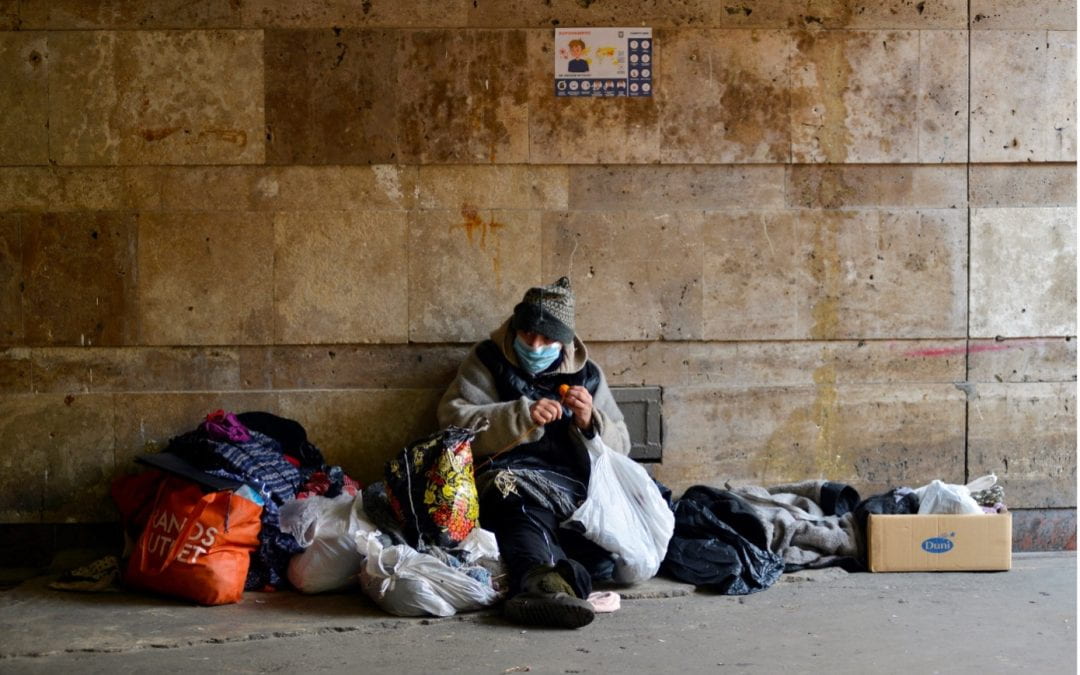
To Address the Homelessness Crisis, Policymakers Must End Criminalization of Homelessness
As unsheltered homelessness in the United States continues to rise, state and local policymakers have responded by criminalizing the very practices these communities use to survive. These policies intend to push unhoused communities out of sight and, out of mind. They subject the homeless to physical violence, injury, disease, and trauma. To even begin to address the homelessness crisis and its devastating health and economic consequences, policymakers must abolish these policies. In their absence, the court system must act to restrict their use, to protect the civil and human rights of homeless communities. Continue Reading To Address the Homelessness Crisis, Policymakers Must End Criminalization of Homelessness

The ‘Skinny’ on Ozempic: Are Off-Label Prescriptions the Newest Diet Trend?
Off-label use of FDA approved drugs has some benefits but also notable costs. Continue Reading The ‘Skinny’ on Ozempic: Are Off-Label Prescriptions the Newest Diet Trend?
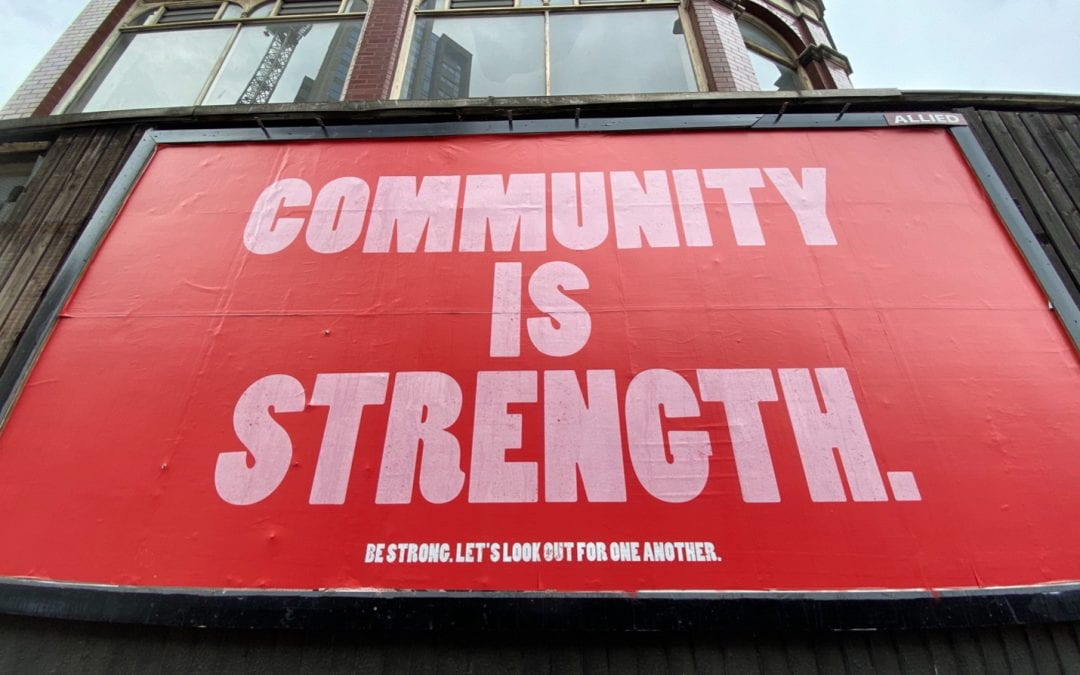
Community-Based Care as a Solution to the Maternity Care Crisis
This blog post discusses the high rate of maternal mortality in the United States and some of the causes behind that high rate of maternal mortality. It concludes that community-based care, characterized by the use of midwives and doulas in maternal care, may effectively remedy this crisis. Continue Reading Community-Based Care as a Solution to the Maternity Care Crisis

Freedom, At The Price of Your Own Organs – The Legal and Ethical Concerns Underlying Massachusetts’s Proposed Bill To Let Prisoners Donate Organs and Bone Marrow In Exchange For Reduced Sentences
There is a significant shortage in bone marrow and organ donations in Massachusetts and across the United States. A bill proposed by the Massachusetts legislature which would allow prisoners to donate bone marrow and organs in exchange for sentence reductions could potentially rectify part of this issue. However, the legal and ethical implications of instating a program like this are numerous. Continue Reading Freedom, At The Price of Your Own Organs – The Legal and Ethical Concerns Underlying Massachusetts’s Proposed Bill To Let Prisoners Donate Organs and Bone Marrow In Exchange For Reduced Sentences

Obstetric Violence: The Unspoken Violence Against Women
Obstetric violence describes the gendered violence against women while they are pregnant, during childbirth, and postpartum. Under the American legal system, women who experience this kind of violence cannot criminally prosecute their care providers. The term, “obstetric violence” should be incorporated into American laws so that there are repercussions for physicians who commit violence against mothers. Continue Reading Obstetric Violence: The Unspoken Violence Against Women

Protesting the Pill: In a Post-Roe World, Anti-Abortion Activists Take Aim at the Abortion Pill
1. As states continue to take extreme action to limit access to abortion in a post-Roe world, the FDA moved forward by allowing pharmacies to dispense abortion pills. There have been numerous attempts by anti-abortion activists to keep access to the abortion pill as limited as possible. Most recently, conservative Attorney Generals have threatened legal action against CVS and Walgreens to keep abortion access as limited and guarded as possible. It is essential to remain aware of these challenges and engaged in the fight for women’s constitutional reproductive rights. Continue Reading Protesting the Pill: In a Post-Roe World, Anti-Abortion Activists Take Aim at the Abortion Pill

The Impacts of COVID-Era Policy Termination
By Daniel Cornellier, JHBL Staff Member With the Biden administration set to end the national emergency status of the COVID-19 pandemic, numerous policies in place are set to expire, leaving many Americans wondering, “what now?”[1] Given that COVID has given...

In High Demand: The Rising Popularity of Psychedelic-Assisted Therapies
The FDA, federal government, and states individually have all experimented with regulation of psychedelics for therapeutic purposes. With increasing scientific evidence that shows effectiveness in treating certain mental illnesses, psychedelic-assisted therapies are becoming a legitimate alternative to traditional care options. Continue Reading In High Demand: The Rising Popularity of Psychedelic-Assisted Therapies

Health and Hospital Corporation of Marion County v. Talevski: Why You Should Care About a Nursing Home in Indiana
This article discusses the recently argued Supreme Court case Health and Hospital Corporation of Marion County v. Talevski and examines the implications of a ruling in favor of Health and Hospital Corporation of Marion County. Continue Reading Health and Hospital Corporation of Marion County v. Talevski: Why You Should Care About a Nursing Home in Indiana

Post-Roe University Compliance—Health of College Students After the Dobbs Decision
By Denise Dezendorf, JHBL Staff Member After the Supreme Court overturned the constitutional right to an abortion in its’ recent decision Dobbs v. Jackson Women’s Health Org., colleges around the United States are struggling to provide comprehensive care for all...

Menopause in the Workplace: The Argument for Better Benefits and Protections for Workforce Retention
Many Americans are working later in life than in previous generations, but many employers do not offer menopause benefits and the pathways for menopause discrimination cases is unclear. It is time for the United States to provide better protections and benefits for its aging workforce. Continue Reading Menopause in the Workplace: The Argument for Better Benefits and Protections for Workforce Retention
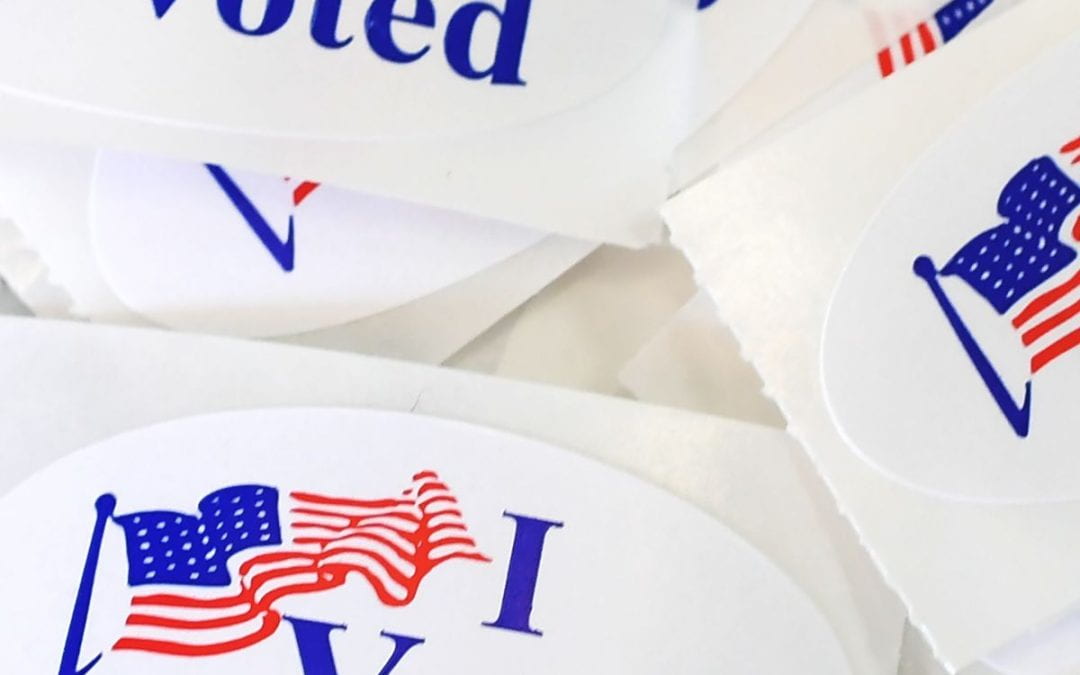
Are Transgender Americans Going to be Heard This Midterm Election Season?
By Helly Patel, JHBL Staff Member Elections bring a whole wave of hope and optimism with them, but for some they also bring obstacles. With each state having their own form of voter identification requirements, this midterm season brings unique barriers to the...

Spilling the Beans: Food Additive Regulations in the United States Pose Serious Health Risks
At first glance, food ingredient lists can read similar to an excerpt from a chemistry textbook. Information about food additives and artificial ingredients is not necessarily hard to find online, but many American consumers are clueless about just what exactly is in the food they are eating. Continue Reading Spilling the Beans: Food Additive Regulations in the United States Pose Serious Health Risks

Over-the-Counter Hearing Aids: Blessing or a Curse?
For a large part, OTC hearing aids are well-received. But some professionals forecast that the lower costs of OTC hearing aids are not an enticing enough justification for completely disposing of the medical evaluation and prescription requirement. Continue Reading Over-the-Counter Hearing Aids: Blessing or a Curse?

Immigration Court and the Lack of Trauma Awareness in Asylum Cases
In the United States, there are many ways asylum seekers are denied asylum due to a lack of a trauma-informed immigration court system. Continue Reading Immigration Court and the Lack of Trauma Awareness in Asylum Cases

What’s the Buzz on Banning “Happy Hour”: Does it Actually Accomplish Anything?
Recently proposed legislation in Massachusetts has gained some momentum for bringing back “happy hour.” Does banning “happy hour” really have an impact on drunk driving statistics? Continue Reading What’s the Buzz on Banning “Happy Hour”: Does it Actually Accomplish Anything?
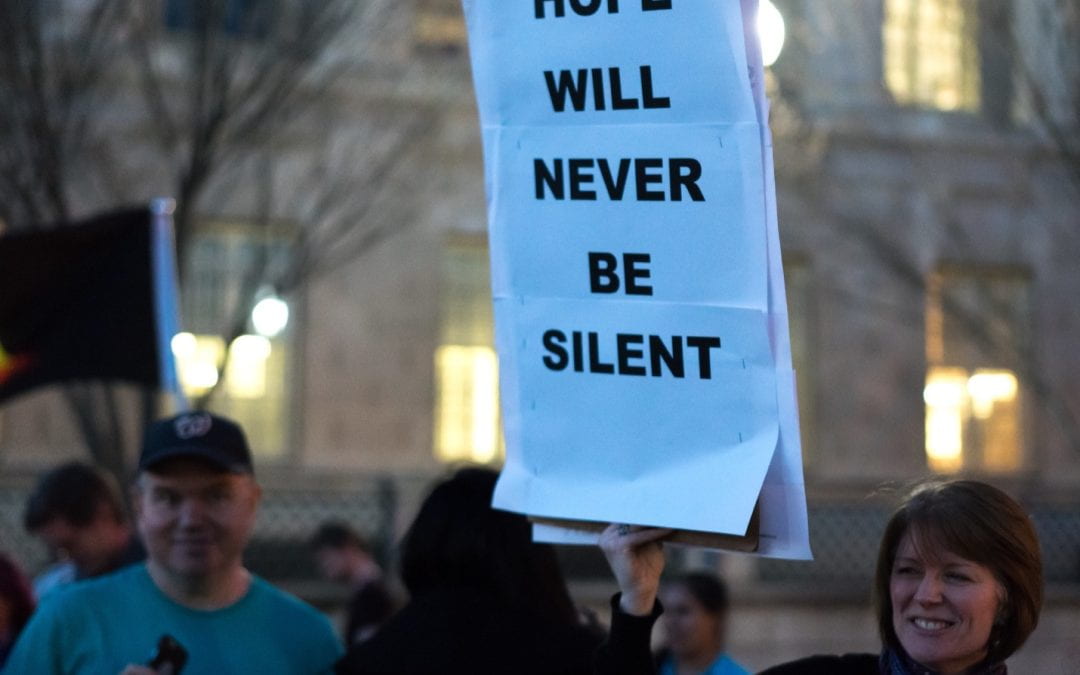
Bringing out the Big Guns: The Fight for Transgender Healthcare Rights and the Political Ammunition Working in Opposition
In the wake of Florida’s ‘Don’t Say Gay’ bill, the newest anti-transgender healthcare bill stripping thousands of transgender Medicaid recipients of necessary care is bringing light to legislative attacks on the LGBTQ+ community. The future of healthcare accessibility for marginalized communities is consistently unpredictable, raising the question: what other political weaponry is lying in wait, and is there hope for reparation of the damage done? Continue Reading Bringing out the Big Guns: The Fight for Transgender Healthcare Rights and the Political Ammunition Working in Opposition

Lax FDA regulations Leave Consumers Responsible to Protect Themselves Against Weight Loss Supplements; States Step in to Protect Minors
The FDA and FTC attempt to regulate over the counter supplements for the overall safety of the public. However, they have limited control over what is ultimately put on the market. Over the counter supplement regulation is mainly left to the discretion of the individual companies to enforce safety of ingredients in products. Various states are attempting to assist in regulating supplements by pushing bills that prohibit the sale of such products to minors. Continue Reading Lax FDA regulations Leave Consumers Responsible to Protect Themselves Against Weight Loss Supplements; States Step in to Protect Minors

Health Care Inequities: When Individuals with Increased Need Have Decreased Access
Despite the passage of federal legislation over the last fifty years inequities and barriers to healthcare for individuals with developmental disabilities (DD) persist. Continue Reading Health Care Inequities: When Individuals with Increased Need Have Decreased Access

Dignity in Death: The Status of Funeral Cost Assistance in Massachusetts
The Department of Transitional helps cover funeral and burial costs for Massachusetts residents, yet this assistance is only available if the total cost is less than $3,500. With increasing costs and the rise of inflation, burying a loved one under this cap is nearly impossible. Not only does this pose serious public health issues, but it reflects the way we view poverty in America. Continue Reading Dignity in Death: The Status of Funeral Cost Assistance in Massachusetts

Unprecedented Mention of Fossil Fuel in Glasgow Climate Agreement
An unprecedented climate agreement was reached during the recent UN convention on climate change that took place in Glasgow. For the first time in history, fossil fuels have been included in the climate agreement, demonstrating significant steps in combatting climate change. However, the agreement made and the significant step toward limiting fossil fuel use may not be enough. Continue Reading Unprecedented Mention of Fossil Fuel in Glasgow Climate Agreement

EPA Finally Takes Step to Regulate Forever Chemicals
EPA takes long-awaited first steps in regulating dangerous “forever chemicals” known as PFAS. Rather than breaking down naturally, PFAS build up in the environment and human body, raising significant concerns for public health.
Continue Reading EPA Finally Takes Step to Regulate Forever Chemicals

Does CTE Stand for Contracts Terminated Early?
Football has always been famous for being a ruthless and violent game, and more and more players are getting hurt with life altering injuries that affect how they play and how long they play. The question is, how do these injuries affect their contracts negotiations with their teams, especially as more is being learned about how serious these injuries are. Continue Reading Does CTE Stand for Contracts Terminated Early?
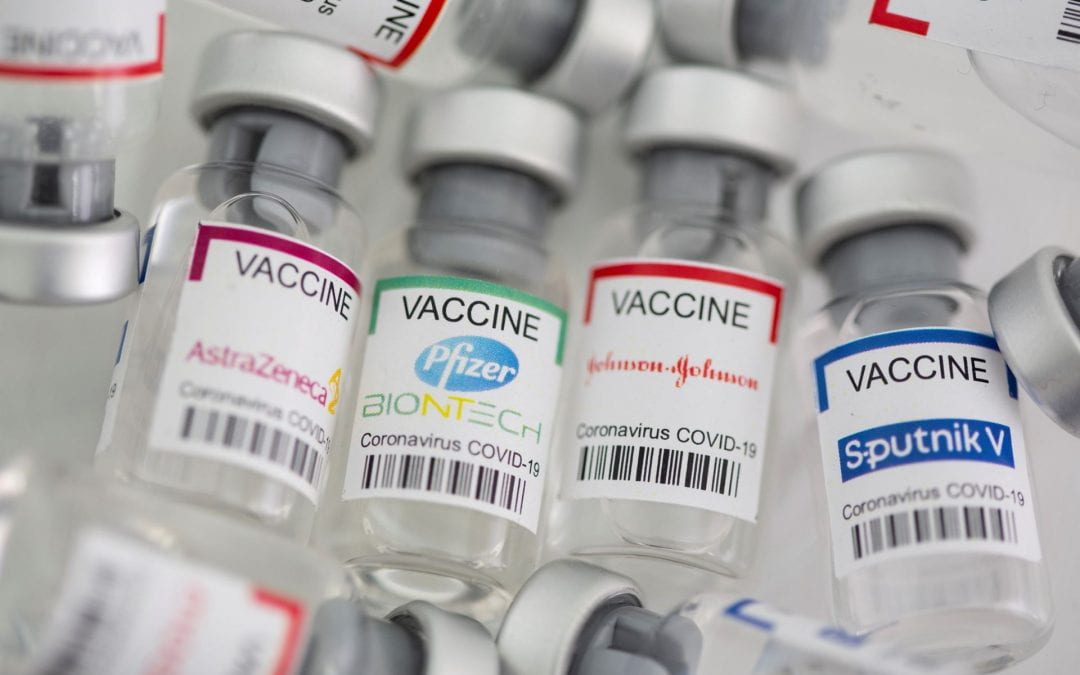
Waiving COVID-19 Vaccine Patents: Balancing The Rights of Pharmaceutical Companies And Public Health Concerns
The patent waiving of COVID-19 vaccines elicited mixed responses among governmental agencies and pharmaceutical industries, but further laid out a solution where equal access and treatment was provided on a global scale. One must take into account public health concerns when assessing IP rights. Continue Reading Waiving COVID-19 Vaccine Patents: Balancing The Rights of Pharmaceutical Companies And Public Health Concerns

Which should come first: the chicken or the laws?
The USDA has recently taken two actions towards the possible realization of lab-grown meat on our supermarket shelves. A grant for a research center at Tufts University and an agency advanced notice of proposed rulemaking both indicate that this future might be here sooner than we think. Continue Reading Which should come first: the chicken or the laws?

Invisible Everywhere Chemicals that Can Shorten Your Life: The Danger of Phthalates
Dangerous hormone-disrupting chemicals called phthalates lurk in the majority of personal care products and plastic food containers in the United States. The FDA does not regulate phthalates to the highest standards. Continue Reading Invisible Everywhere Chemicals that Can Shorten Your Life: The Danger of Phthalates

Impoverished and Deserted: The Disproportionate Impact of Food Insecurity on Minority Communities in Massachusetts Before and After the Coronavirus Pandemic
Food insecurity has always been a concerning issue that has disproportionately affected minority communities within the state of Massachusetts. Tragically, as a result of the COVID-19 pandemic, the percentage of Black and Latinx adults suffering from food insecurity within the state increased significantly. Although the city of Boston implemented a strategic approach to resolve food insecurity by 2030, it is unclear whether these policies will be successful in rectifying the devastating effects coronavirus has had on minority communities.

Making Victims Whole: Reassessing Legal Protections of Person and Property
Advanced prosthetics merge man and machine, demanding enhanced legal protections for injury to a wearer’s prosthetic device. Given the enhancement in medical technology, such intimate integration of prosthetics with the human body renders current law surrounding prosthetic device damage inadequate. Continue Reading Making Victims Whole: Reassessing Legal Protections of Person and Property

Silver Linings: Title IX and VRLC et al. v. Cardona
New guidance by the Office for Civil Rights in response to the Massachusetts case VRLC et al. v. Cardona makes cross-examination less onerous for schools and students alike. The timing of this change is an opportunity for schools to rebuild trust in new policies. Continue Reading Silver Linings: Title IX and VRLC et al. v. Cardona

Gender-Affirming Healthcare Saves Children’s Lives
Health care is meant to enhance our quality of life. Imagine watching your state legislation filled with powerful people attempting to deny access to the few treatments that may help you attain a good quality of life. With depression, anxiety, and suicide rates on the rise because of COVID-19, combined with the previously disproportionate suicide rates amongst transgender youth, states such as Arkansas are threating the lives of thousands of children by prohibiting access to gender-affirming health care. The mere proposal of this type of legislation puts transgender youth at risk.
Continue Reading Gender-Affirming Healthcare Saves Children’s Lives

Mental Health Courts: The Answer to Reducing the Incarceration of Individuals Suffering from Mental Illness?
With more individuals suffering from mental illness housed in Chicago’s Cook County Jail than any single psychiatric facility in the United States, the question begs being asked: what can be done to keep an individual suffering from mental health concerns from being incarcerated in the first place? Frustrated with their lack of alternatives, District Attorneys, judges, and advocates across the country, have responded with an innovative answer – mental health courts. Continue Reading Mental Health Courts: The Answer to Reducing the Incarceration of Individuals Suffering from Mental Illness?

Stand Together for Victory Against the Coronavirus
By Qin Zhou, JHBL Staff Member
This is our war. Not war between China and the United States, but together, against the coronavirus. Growing up, I was always fascinated with war and never stopped looking for a new diary, a new memoir, or a new movie on struggles between men. Now I understand how the world can change overnight and how quickly one must adapt to the world around him. War is the struggle between ideology and states, between values and morals, and between people. And this time, it is not human against human, but man against nature. In this war against the coronavirus, the United States and China must stand back-to-back and thrive together, just like the war we fought against Imperial Nazis seventy years ago. This blog discusses two questions, who should take responsibility and what method works. Continue Reading Stand Together for Victory Against the Coronavirus

States’ Varying Prioritization of Prisoners in Vaccine Rollout Draws Partisan Critiques
By Alexandra Wheaton, JHBL Staff Member
Vaccine rollout decisions have propelled lawmakers into a partisan moral dilemma: should prisoners receive priority immunization status? With the answer to this question varying markedly across states, fatal consequences have ensued for incarcerated individuals prevented from receiving the vaccine. Presently, only 30% of states have begun to vaccinate their prisoners, despite the fact that the COVID-19 infection rate within state and federal prisons is more than four times that of the general population. Over a year has elapsed since the first COVID-19 cases were reported in the United States, yielding more than 386,564 positive tests in the case of prisoners. The fatality rate of COVID-19 in prisons ranges from 2-7 times that of the general population. These rates are likely even higher than reported due to the narrow criteria required for prisons reporting cases. Reflective of the infection patterns seen in the general population, the pandemic has disproportionately affected people of color within the prison system. Black Americans, who are incarcerated at five times the rate of white Americans, are more likely to be infected and hospitalized with COVID-19. Continue Reading States’ Varying Prioritization of Prisoners in Vaccine Rollout Draws Partisan Critiques

Life After Death: Reproductive legal and ethical issues stemming from policy absence
By Elpida Velmahos, JHBL Staff Member
What sounds like a distant, futuristic, sci-fi invention is now a modern-day reality—creating life after death. Posthumous reproduction is a type of assisted reproductive technology (ART). ART includes In-vitro fertilization (IVF) and cryopreservation of gametes (egg and sperm) & fertilized embryos. Both address the innate human drive we possess—to survive and reproduce. New reproductive technologies allow many people to participate in the process of reproduction who otherwise, either because of personal biological hindrances or overall life circumstances, may not have been able to. Every revolutionary technological innovation, however, is followed by many ethical, legal, and social implications. These implications all need to be examined socially and legally to create appropriate policies to prevent systemic abuse, protect the interest of the innocent and unable, and maintain the balance of all interests involved. Posthumous reproduction (PHR) allows the non-coital reproduction of a child to take place using the gametes of a deceased parent (most commonly that of the biological male parent) using ART. Continue Reading Life After Death: Reproductive legal and ethical issues stemming from policy absence

Praying for a Healthy Birth, Black Mothers Fighting Racism Even in the Delivery Room
By Ilse Turner, JHBL Staff Member
At the best of times, having a baby is one of the most anxiety-inducing times in a woman’s life. The days leading up to the birth are often filled with thoughts such as, will my baby be healthy? Will the doctor be on time? What if I need to have an emergency c-section? But, for black women, there is an additional worrying question, will I receive adequate medical care? On average, black women are two to three times more likely to die from pregnancy-related causes than white women. These trends persist even across states with lower pregnancy mortality rates and across all educational levels.
Continue Reading Praying for a Healthy Birth, Black Mothers Fighting Racism Even in the Delivery Room

Chemical Irritants: A Threat to Public Health and Constitutional Rights
By Alfred A. Spencer, JHBL Staff Member
On January 28, 2021, the District Court for the Western District of Washington granted the plaintiff’s third motion for contempt against the city for their use of crowd control agents following a prior preliminary injunction hearing. Black Lives Matter Seattle-King City v. City of Seattle was one of the first cases brought against the state for the police use of tear gas against protestors for what occurred during the 2020 protests. Additionally, this case was one of the first to have a preliminary injunction granted. When the court had initially granted the plaintiffs motion for a preliminary injunction in June 2020, the court stated, “[The] SPD’s use of less-lethal, crowd control weapons have surely chilled speech. To start, exposure to tear gas and pepper spray is excruciating.”
Continue Reading Chemical Irritants: A Threat to Public Health and Constitutional Rights

An Unidentified and Long-Term Side-Effect of COVID-19: How the United States Can Navigate the Intensified Mental Health Crisis as a Result of the Coronavirus Pandemic
By Rohit Sinha, JHBL Staff Member
The Coronavirus pandemic shook the United States to its core and is exposing so many flaws in America’s health care system and political institutions. However, aside from the nearly half-million deaths nationwide, record high unemployment, and drastic life adjustments, Americans are starting to feel the psychological toll the pandemic is placing on them. In January 2020, before the first reported COVID-19 case in the United States, one in ten adults reported symptoms of anxiety or depressive disorder. That number quickly increased to four in ten once the pandemic forced the United States to essentially shut down and caused a massive economic recession. Continue Reading An Unidentified and Long-Term Side-Effect of COVID-19: How the United States Can Navigate the Intensified Mental Health Crisis as a Result of the Coronavirus Pandemic

The Toll of Covid-19 on Mental Health
By Hope Simas, JHBL Staff Member
Prior to the onset of the pandemic, the U.S. was already experiencing a high rate of adults affected by mental illness. Throughout this unprecedented time, fear and uncertainty are likely to amplify mental health issues. Further, epidemics induce a sense of general stress across people, which may lead to new mental health issues. An epidemic is an outbreak of disease that spreads quickly and affects people within a community or region, while a pandemic spreads over multiple countries or continents. As Covid-19 came in full swing in 2020, the government and state officials worked to put various mandates in place to stop the spread. However, these varying stay-at-home orders coupled with fear of the virus quickly heightened people’s emotions. As the pandemic continues on with no end in sight, the weight of isolation, job insecurity, personal economic sustainability, and the fear of exposure to Covid-19 will continue to take its toll on individual mental health. Continue Reading The Toll of Covid-19 on Mental Health
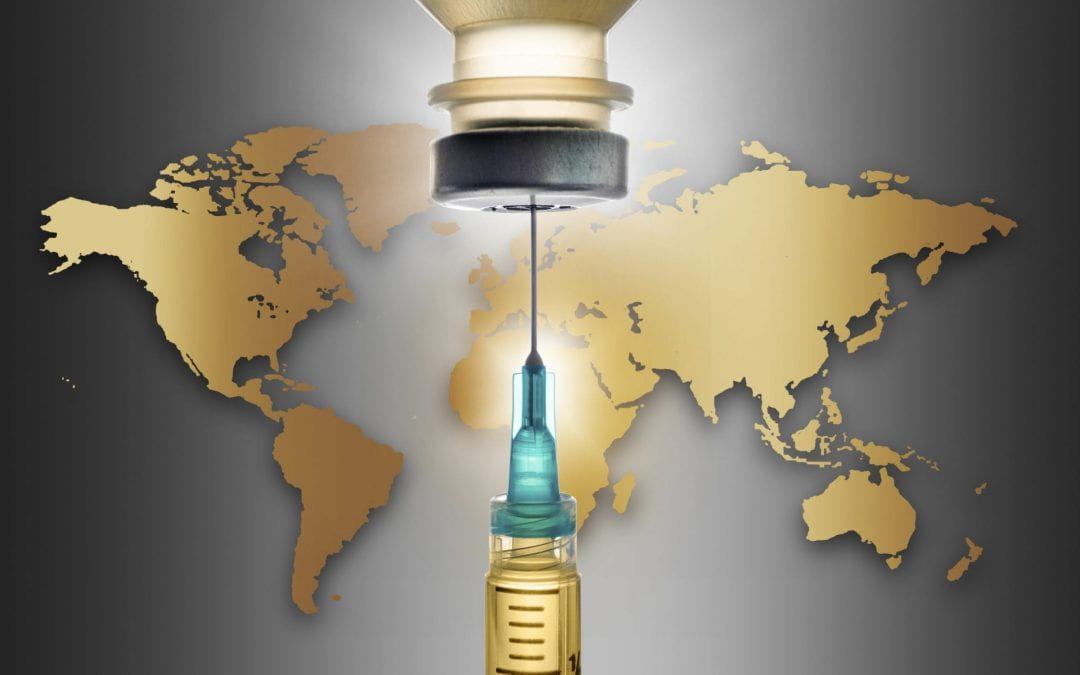
Haven’t You Herd?: Can the COVID-19 Vaccine be Compulsory to Reach Herd Immunity
By Brooke Sheldon, JHBL Staff Member
Throughout the pandemic, the dream of a COVID-19 vaccine seemed like the light at the end of the tunnel for many. As that dream turned into a reality, states began distributing the vaccine to certain high-risk groups of people, including frontline healthcare workers (heroes), the elderly, and those with health complications. As the vaccine gets closer to being administered to the general public, many wonder if they want the vaccine at all. A recent Gallup Poll reveals that 42% of Americans said they would not participate in a program involving a free government-approved vaccine. American’s hesitation likely stems from the general stigma surrounding the health effects of vaccines, as well as the COVID-19 vaccine’s unprecedented development speed. As reluctance towards COVID-19 vaccinations grows, the potential for herd immunity inherently decreases. Many see the solution as compulsory COVID vaccinations, raising the question of whether the government has the power to mandate a COVID vaccination. To better understand what we can expect from the vaccine moving forward, it is important to understand why vaccines are so important and where the law stands regarding making them compulsory. Continue Reading Haven’t You Herd?: Can the COVID-19 Vaccine be Compulsory to Reach Herd Immunity

Impact of COVID-19 School Lockdowns on Low-Income and Minority Children
By Alyssa Schnoor, JHBL Staff Member
Long before the pandemic shut down, schools across the country were already experiencing an alarming achievement gap between poor students/students of color and wealthy/white students. A major reason for this gap is funding, with non-white school districts receiving an average of $23 billion less than predominantly white school districts, despite serving about the same number of students. It is important to note that not all low-income schools predominantly serve minority students, but minority students are overrepresented compared to white students in low-income, underperforming schools. Although inequitable funding for schools is one contributing factor, the achievement gap between white students and Black students is already present by the time children are four years old. Disparities in education outcomes are a result of larger social disparities. The COVID-19 pandemic and the shift to remote learning have revealed the severity of this national crisis. Continue Reading Impact of COVID-19 School Lockdowns on Low-Income and Minority Children

Forced Inaction: The Court Attempts to Outpace Misinformation in Spreading the Pandemic
By William Rison, JHBL Staff Member
Conspiracy theories dangerously erode the public trust in government institutions, and online platforms facilitate and amplify the proliferation of increasingly extreme theories. Algorithms on Facebook and YouTube are designed to funnel content that supports and builds upon existing beliefs. Generated content uses an individual’s search terms and has gradually become more extreme by engaging the user for increasingly longer periods of time and exposing the user to more advertisements. Online platforms, therefore, benefit from the wide dissemination of conspiracy theories because they generate more profit for the platform. “Conspiracy theories are difficult to displace because they provide explanations for events that are not fully understood, such as the current pandemic, play on people’s distrust of government and other powerful actors, and involve accusations that cannot be easily fact-checked,” said Kathleen Hall Jamieson, Annenberg Public Policy Center director. Continue Reading Forced Inaction: The Court Attempts to Outpace Misinformation in Spreading the Pandemic

Dueling Diseases: How the Coronavirus Pandemic Has Intensified the Opioid Epidemic
By James Poccia, JHBL Staff Member
Before COVID-19 took the nation by storm in early 2020, the opioid epidemic was the biggest health concern in the United States. But since the first case of COVID-19 was confirmed in the United States, it has been the subject of the country’s undivided attention as it halted everyone’s day-to-day lives. Meanwhile, the opioid crisis “quietly” found renewed life in the midst of the overriding COVID-19 pandemic. Significant progress had been made in combatting the opioid epidemic through the past few years. For example, there was actually a decrease in opioid-related drug deaths in 2018 for the first time since 1990. Despite such positive strides, many believe that COVID-19 threatens to erase that progress if measures are not taken to address the underlying opioid health crisis. Continue Reading Dueling Diseases: How the Coronavirus Pandemic Has Intensified the Opioid Epidemic

Prioritizing Health Over Punishment – Oregon becomes the first state to decriminalize personal possession of all drugs
By Meghan Phelan, JHBL Staff Member
In the early 1970s, President Richard Nixon declared a War on Drugs, stating drug abuse was “public enemy number one.” Nixon’s initiative increased federal funding for drug control agencies and implemented strict measures mandating prison sentences for drug-related crimes. Since then, drug users have been viewed as “morally corrupt troublemakers.”[1] However, this notion is now being challenged because the idea of treating drug addiction as a public health problem, rather than one of crime and punishment, is gaining traction. Continue Reading Prioritizing Health Over Punishment – Oregon becomes the first state to decriminalize personal possession of all drugs

Can You Afford Your Disease? How the Presidential Election will Determine the Future of the Free Market
By Jordyn Murphy, JHBL Staff Member
Drug prices have significantly increased over the years, leaving many Americans unable to afford their prescriptions. The price increases are not because the prescriptions have any additional health benefits or cost more to make. Rather, the free market and lack of governmental regulation have permitted corporate greed to take over. Fixing the system will not be easy or quick, and Americans are looking to the new President-elect, Joe Biden, to tackle prescription drug prices.

Suing China Over COVID-19 – Can It Be Done, And Who Is Crazy Enough To Try?
By Joseph Mongiardo, JHBL Staff Member
As the COVID-19 pandemic enters its ninth month, many stir-crazy Americans understandingly find themselves angry – and what do Americans do when we are angry? We file lawsuits, of course.[i] While one could get into a deeper discussion of the political nature of the pandemic, and the subsequent finger-pointing of its handling, I seek no part in that discussion here: the fact of the matter is there is a select portion of the U.S. population currently seeking to sue China for liability. But is a lawsuit really a viable way to proceed? Can American litigants really bring the monolith of the Communist Party of China to bear for the deaths caused by the virus? Continue Reading Suing China Over COVID-19 – Can It Be Done, And Who Is Crazy Enough To Try?

Does The American Medical Association Contribute To The Physician Shortage In The United States?
By Tim Jenis, JHBL Staff Member
The word “Cartel” is associated with numerous negative concepts. It is most commonly associated with the illegal drug trade, and a quick google search of the word will show problems with this thinking. The first of many results for this search show drug trafficking-related content. Drug trafficking cartels, such as the Sinaloa Cartel, are merely examples of cartels. The definition of the word cartel is much broader than the general perception of the word. According to Merriam-Webster, a cartel is defined as “a combination of independent commercial or industrial enterprises designed to limit competition or fix prices.” Cartels are a more common concept than people think and affect the United States in ways more than just the illegal trade of drugs. Continue Reading Does The American Medical Association Contribute To The Physician Shortage In The United States?

Telemedicine: The Future of Medicine or Health Care Fraud?
By Christian Ison, JHBL Staff Member
With the ever-growing concern of the COVID-19 outbreak, telemedicine is a very accessible way for people to receive the healthcare they need. Telemedicine is the distribution of health services and information via electronic and telecommunication technologies. On the one hand, this methodology allows patients to receive the care and services they need while maintaining social distancing guidelines to reduce the risk of spreading and contracting the virus. However, on the other hand, there is room for telemedicine to be exploited and blatantly abused for personal financial gain by licensed medical professionals. Continue Reading Telemedicine: The Future of Medicine or Health Care Fraud?

Fact or Fad: Can Consumers Trust Online Influencers?
By Danielle Gitzen, JHBL Staff Member
In the midst of quarantine, many of us find our two-minute social media scroll turns into two hours. We receive hundreds of diet and health fads at our fingertips, but can we really trust what these “influencers” are telling us? And who do we have, as consumers, to provide us with the truth? Continue Reading Fact or Fad: Can Consumers Trust Online Influencers?

Artificial Intelligence Improving Treatment Plans vs. The Liability Risk
By Samantha Das, JHBL Staff Member
Technology is developing in many new ways, including within the healthcare system. As artificial intelligence algorithms improve, the prediction and accuracy of catching diseases and illnesses become more precise, yet there are still risks of tort liability for the developers. Continue Reading Artificial Intelligence Improving Treatment Plans vs. The Liability Risk

California Wildfires: What is Happening, What are the Impacts, What Can be Done
By Kevin Boyle, JHBL Staff Member
2020’s been a hell of a year—literally. The state of California is currently in an all-out war with numerous wildfires. As of Monday, September 21, 2020, California is battling 27 wildfires, as well as one extended attack wildfire. These fires have already burned over 3.6 million acres—roughly the size of the state of Connecticut. Continue Reading California Wildfires: What is Happening, What are the Impacts, What Can be Done
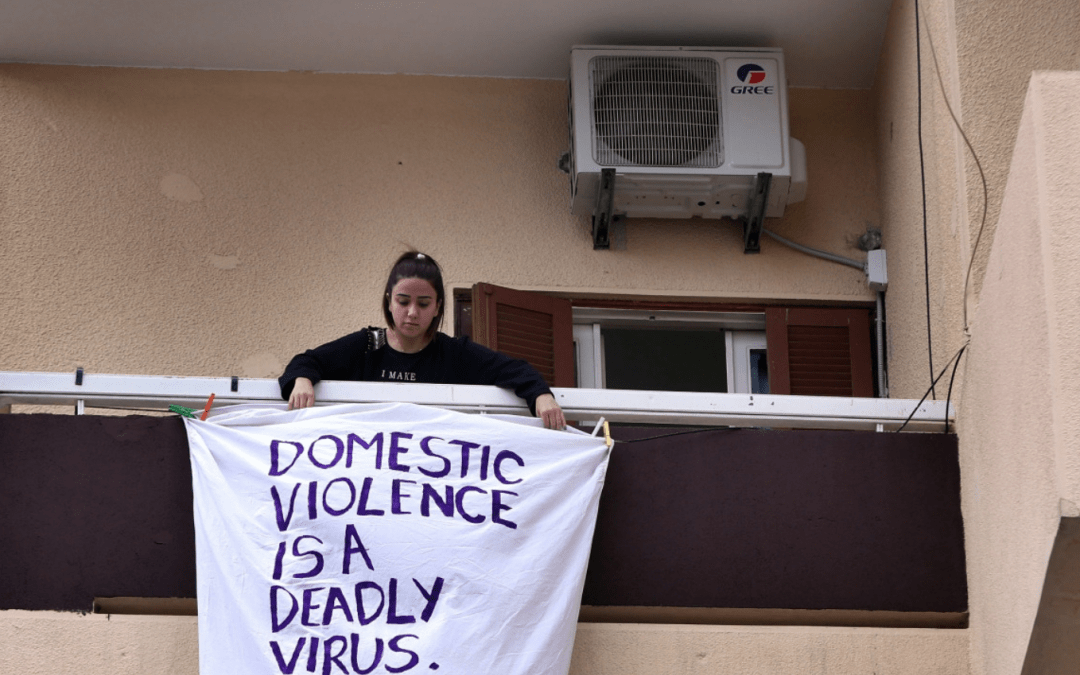
The Pandemic’s Hidden Crisis: Domestic Abuse. Are We All Really Safer at Home?
By: Melanie Amaral, JHBL Staff Member
One in every seven children has experienced abuse or neglect, and this is likely an understatement. Child abuse and neglect is a public health crisis that carries lasting health implications into a child victim’s adulthood. Furthermore, one in four women and nearly one in ten men have experienced some form of intimate partner violence, or IPV. IPV includes physical and sexual violence, stalking, and psychological aggression. Like child abuse and neglect, IPV is a public health crisis that leaves survivors with negative health consequences ranging from chronic conditions affecting the heart and reproductive systems, to mental conditions such as depression and posttraumatic stress disorder. Unfortunately, the current public health crisis formed by the Covid-19 pandemic is making matters worse: quarantine practices and state stay-at-home-orders are directly related to an increase in domestic abuse. We have been told for months that staying home can save lives. Unfortunately for some, this will come at a price, and the United States must do better to recognize this shadowed crisis. Continue Reading The Pandemic’s Hidden Crisis: Domestic Abuse. Are We All Really Safer at Home?

June Is Bustin’ Out On Precedent: The Case for June Medical Services v. Russo
By Kelley Huber, JHBL Chief Symposium Editor
Abortion advocates and opponents are waiting fervently for the Supreme Court’s decision in June Medical Services v. Russo, an appeal from the 5th Circuit. In this case, the state of Louisiana is attempting to implement hospital admitting privileges as a requirement for abortion clinics to remain open under current state health protocols Under this logic, an abortion provider can only deliver abortion care safely by having the power to admit patients to a local hospital, despite less than 1% of patients experiencing complications from the procedure. This may seem like a redundant concept for the Court to extrapolate because it recently has—in 2016’s Whole Woman’s Health v. Hellerstedt. This case involved a similar state requirement in Texas, and the Supreme Court found this requirement to be an undue burden for the delivery of abortion services in the state. However, June Medical arrived at the Supreme Court after the 5th Circuit misapplied the Whole Woman’s Health precedent in an en banc decision and found the state requirement to not be burdensome. When the abortion clinic appealed to the Supreme Court, the state filed a countersuit asking the Court whether giving third-party standing to abortion providers on behalf of their patients was constitutional. Continue Reading June Is Bustin’ Out On Precedent: The Case for June Medical Services v. Russo
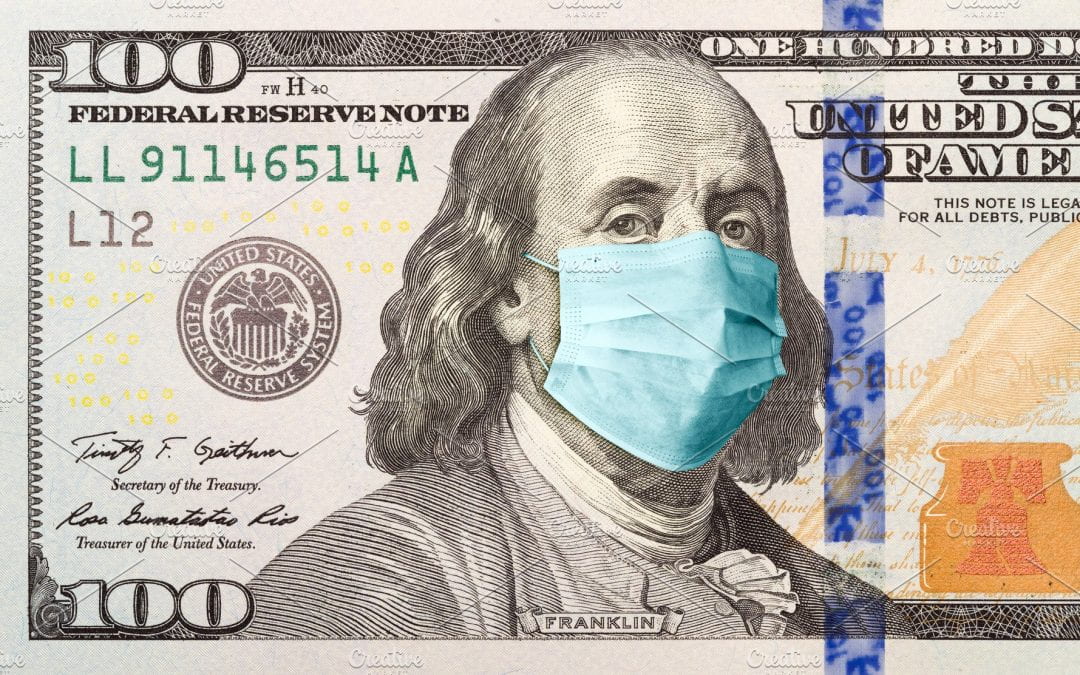
COVID-19 EXPOSES ECONOMIC INEQUALITY
By Adanda Timothy, JHBL Staff Member
The COVID-19 pandemic has put a spotlight on economic inequality in the United States. With the systematic disadvantages low-income communities face, our most vulnerable Americans are left to bear the brunt of the crisis. Continue Reading COVID-19 EXPOSES ECONOMIC INEQUALITY

New England Area COVID-19 Travel Restrictions Raise Constitutional Questions
By Robert Wheeler, III, JHBL Staff Member
Faced with a surging number of COVID-19 cases, state governors and municipality administrators find themselves pitted against each other while trying to balance the constitutional rights of citizens against the exigencies of a public health crisis. One governor last week caused headlines with her unprecedented plan to protect here state’s borders. Continue Reading New England Area COVID-19 Travel Restrictions Raise Constitutional Questions

Unfilled Scripts: How the Coronavirus Outbreak Exposes the U.S. Drug Shortage Crisis
By Xiaowei Sun, JHBL Staff Member
With many pharmaceutical companies relying on foreign-sourced ingredients and manufacturing plants abroad, the Coronavirus outbreak exposes the vulnerabilities in America’s drug supply chain. As fears of drug shortages grow, pending legislation could mitigate the shortage. But the severity of a shortage may depend largely on how COVID-19 impacts the countries the U.S. relies on for its drug supply chain. Continue Reading Unfilled Scripts: How the Coronavirus Outbreak Exposes the U.S. Drug Shortage Crisis
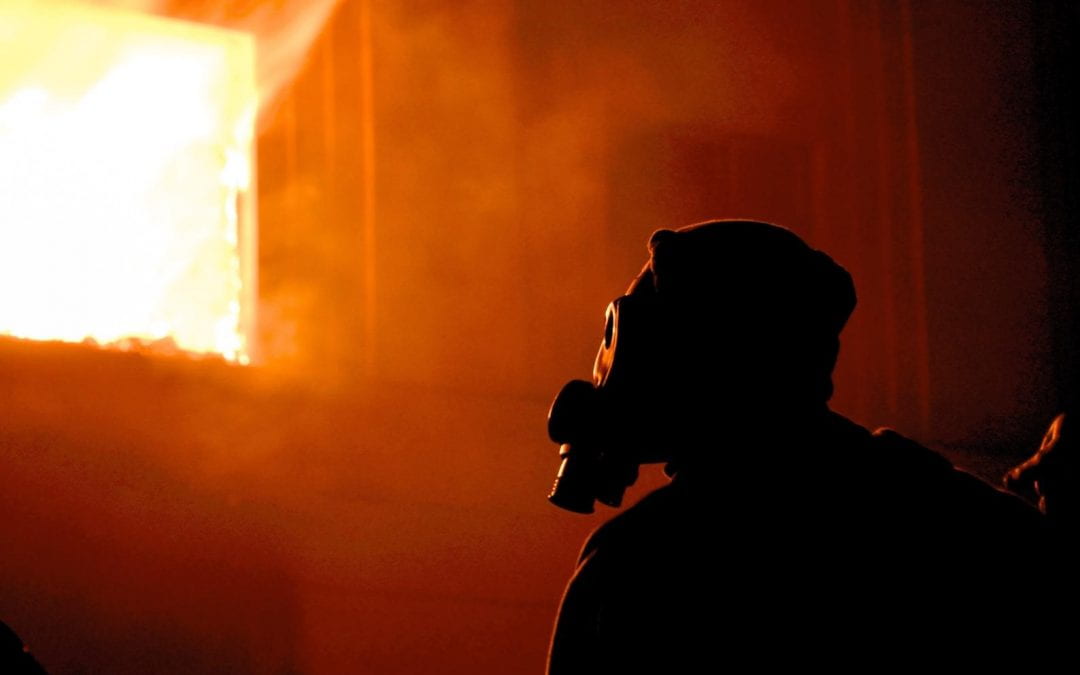
Chemical Consequences of Combat: Victims of Government Inaction Relating to the Genetic Consequences of Exposure
By Jonathan Tilden
Over the past few decades, a great deal of attention has been given to the seemingly ever-rising number of cases of birth defects being reported in the children and grand-children of Vietnam veterans who were exposed to Agent Orange. The federal government and the Department of Veterans Affairs have taken objectionable stances on issues relating to those afflicted by vehemently denying any connections between certain illnesses and exposure to Agent Orange. They do this by showing a reluctancy to assume responsibility and provide care to those who have legitimate claims of their illnesses being scientifically linked to the deadly chemical compound. Could the consequences of being exposed to burn pits in the modern age create similar hurdles for those afflicted and their future generations? Continue Reading Chemical Consequences of Combat: Victims of Government Inaction Relating to the Genetic Consequences of Exposure

HHS Grants Broad Liability Immunity against Future Claims Related to COVID-19 Countermeasures
By Michael Mancinelli, JHBL Lead Articles Editor
Amidst unprecedented disruptions to our economy and way of life, the Dept. of Health & Human Services this week granted tort immunity for activities related to COVID-19 countermeasures. Given the vast scale and immediacy of this outbreak, the implications of this declaration are enormous. In effect, the declaration creates liability immunity for a range of manufacturers and healthcare providers tasked with producing, distributing, and administering COVID-19 countermeasures. Continue Reading HHS Grants Broad Liability Immunity against Future Claims Related to COVID-19 Countermeasures

What Can the U.S. Do to Stop the Spread of Coronavirus & What Can the World Do to Minimize the Economic Impact of the Virus
Over the past 2 months, the Coronavirus has taken the world by storm, with over 100,000 reported infections and over 3,400 deaths. Due to China’s truant and condemnable response and coverup of COVID-19, countries around the world are scrambling to try to contain the spread of Coronavirus. What legal tools can the United States federal government and state governments implement to mitigate, or even stop the spread of the virus? How can the government minimize the effect the virus has on the national and local economy? Continue Reading What Can the U.S. Do to Stop the Spread of Coronavirus & What Can the World Do to Minimize the Economic Impact of the Virus

Popping the Blue State Bubble: How the ROE Act Puts Massachusetts In The 21st Century
Massachusetts has long been a leader in progressive legislation. However, the Commonwealth still has decades-old laws requiring parental consent for all minors seeking an abortion. Here, 2L staffer Kelley Huber analyzes the opportunity for repealing the parental consent and judicial bypass processes in the recently introduced ROE Act. Continue Reading Popping the Blue State Bubble: How the ROE Act Puts Massachusetts In The 21st Century

Avoiding Accountability: The Insulation of Pharmaceutical Companies from Criminal Liability
By Annastasia Morairty
Fraud, misconduct, and illegal activity are well-known aspects of pharmaceutical companies’ business practices. Unlike other large industries, while business practices may be potentially unethical, but not illegal, those in the pharmaceutical industry routinely and flagrantly engage in illegal activity without facing any deterrent consequences. The Food and Drug Administration (FDA) and the False Claims Act (FCA) deem pharmaceutical companies criminally and civilly liable for engaging in conduct including, but not limited to, misbranding and mislabeling products, promoting products for off-label or non-FDA approved uses, misrepresenting or adulterating data and clinical trial results, and failing to disclose or adequately warn consumers of potential risks and side effects. Continue Reading Avoiding Accountability: The Insulation of Pharmaceutical Companies from Criminal Liability

Connecticut Students Sue to Stop Transgender Athletes from Competing in High School Track Meets: An Analysis of Transgender Rights Under Title IX
By Christin Flynn Lal
Exclusionary policies for transgender student-athletes’ participation in school sports pose a severe health risk to a vulnerable population and states have an obligation to protect the health and safety of all students by enacting non-discriminating statutes. A recently filed federal lawsuit in Connecticut challenges the state’s inclusionary policies for interscholastic sports, pitting the statutory rights of transgender students to participate against the calls of unfairness and violations of Title IX. Continue Reading Connecticut Students Sue to Stop Transgender Athletes from Competing in High School Track Meets: An Analysis of Transgender Rights Under Title IX

Finland’s Fight for Families: The Prime Minister’s Gender-Neutral Solution to Parental Leave
By Bridget Moran
Finland’s prime minister recently announced a new policy for family leave – seven months to each parent. The policy is designed to be gender-neutral and reflective of “today’s concept of family.” It is part of Finland’s effort to promote gender equality and address the country’s declining birth rate. The reform brings Finland in line with Sweden, Norway, Iceland, Estonia, and Portugal in having the world’s most generous family-leave policies. A look at Finland’s history and culture highlights how it is able to achieve such radical reform. Continue Reading Finland’s Fight for Families: The Prime Minister’s Gender-Neutral Solution to Parental Leave

Refusing to Negotiate: Why Surprise Medical Bills May be Unenforceable
By Asher McGuffin
A growing number of patients receive surprise medical bills that can be as much as 40 times normal rates. This happens when healthcare providers, often working at in-network hospitals, hide their out-of-network status from patients. Although everyone has traditionally assumed surprise bills were legally enforceable, several courts have recently ruled against surprise bills. Continue Reading Refusing to Negotiate: Why Surprise Medical Bills May be Unenforceable

Mother Knows Best?: How the Texas Advance Directives Act Complicates the Relationship between Patients, Caregivers, and Hospitals
By Devin McDonough
A Texas court recently decided a baby girl in a Texas children’s hospital could be taken off life support pursuant to a decision of the hospital’s ethics committee. Per the “10-day rule”, a hospital can cease life-sustaining treatment if within 10 days another hospital is unavailable to care for the patient or a court does not extend the time. A rule of this magnitude is essentially presented with no procedural safeguards, much to the detriment of patients and their families. Continue Reading Mother Knows Best?: How the Texas Advance Directives Act Complicates the Relationship between Patients, Caregivers, and Hospitals
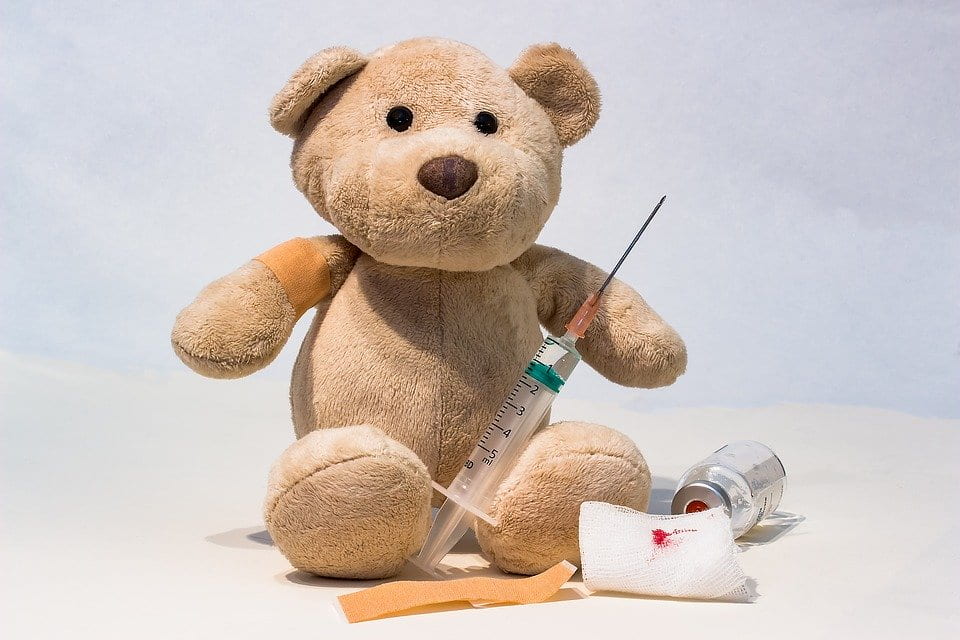
A Simple Solution to Make Flu Vaccinations More Accessible to Children
By Thomas J. Mehlich
Expanding children’s access to vaccines at pharmacies is one way state governments can help limit influenza outbreaks. Continue Reading A Simple Solution to Make Flu Vaccinations More Accessible to Children

What are the Criminal Standards for Improper Prescribing and Uttering a False Prescription in Massachusetts? The SJC Offers Clarification for Healthcare Professionals and Prosecutors
By Michael R. Mancinelli
A new Supreme Judicial Court ruling issued this week in Commonwealth v. Stirlacci offers a cautionary tale for solo-practitioners in Massachusetts while establishing new criminal standards for improper prescribing and uttering a false prescription. Continue Reading What are the Criminal Standards for Improper Prescribing and Uttering a False Prescription in Massachusetts? The SJC Offers Clarification for Healthcare Professionals and Prosecutors

Supervised Injection Sites – Legally Allowing the Use of Illegal Drugs?
By Sarah Marshall
A District Court judge recently ruled that an organization’s plan to open a supervised injection site where people can use illegal opioids under medical supervision does not violate federal drug laws. Endorsed by the American Medical Association, these sites hope to help combat fatal drug overdoses, but Prosecutors across the country are divided in their support, or lack thereof, for the program. Continue Reading Supervised Injection Sites – Legally Allowing the Use of Illegal Drugs?
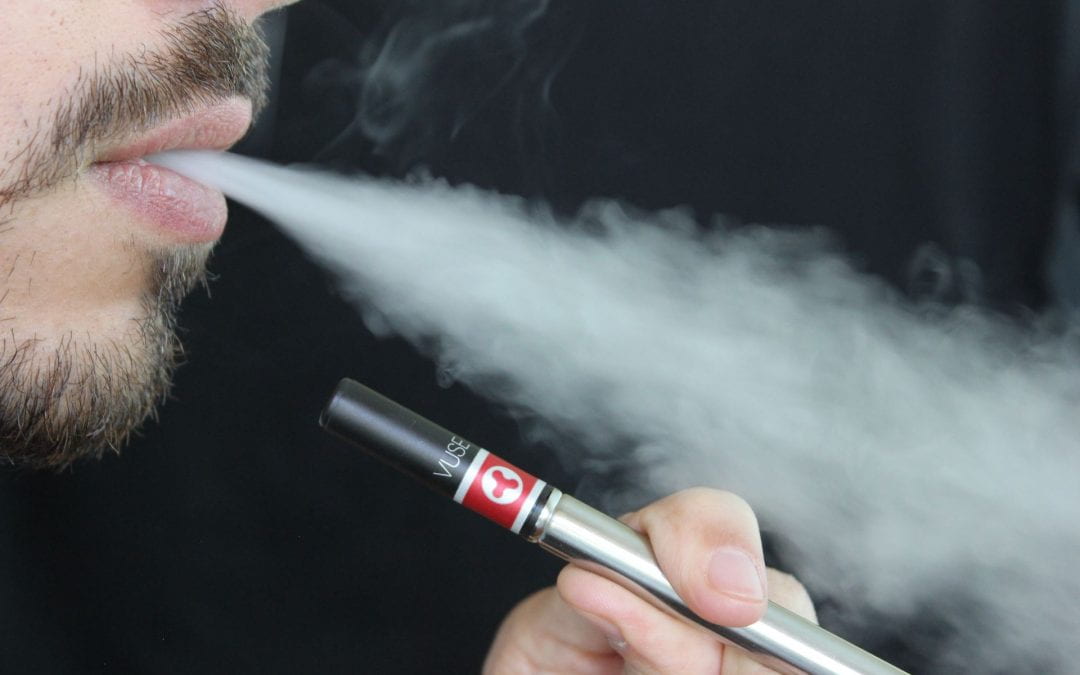
IS THIS THE END OF VAPING? A BRIEF HISTORY OF VAPING AND HOW STATES CAN RESTRICT THE FREE MARKET THROUGH EMERGENCY LEGISLATION
As public officials grapple with how to handle the public health risks associated with the proliferation of vape products and e-cigarettes, it is important to examine the government’s authority to regulate during public health emergencies. Continue Reading IS THIS THE END OF VAPING? A BRIEF HISTORY OF VAPING AND HOW STATES CAN RESTRICT THE FREE MARKET THROUGH EMERGENCY LEGISLATION

PRESCRIPTION FOR END OF LIFE CHOICE: PHYSICIAN-ASSISTED DEATH WITH DIGNITY
By Kane Levings
Don’t we all want to die with dignity? Not legalizing physician-assisted death takes away the ability for a terminally ill person to choose when and how they die. To avoid insufferable pain and a short life expectancy, physician-assisted death has helped many people take back control of their life. Continue Reading PRESCRIPTION FOR END OF LIFE CHOICE: PHYSICIAN-ASSISTED DEATH WITH DIGNITY

Roadblocks on the Road to Recovery in Massachusetts: Informing “Section 35” Petitioners for Involuntary Commitment About the Differences Between Treatment Facilities for Alcohol and Substance Abuse Disorder
In Massachusetts, family members, police officers and certain medical professionals can petition a court for the involuntary civil commitment and forced treatment of individuals suffering from substance or alcohol use disorder. But the state has not done enough to clearly inform petitioners about how not all Section 35 Treatment Facilities are the same and how men and women are not treated equally under the law.
Continue Reading Roadblocks on the Road to Recovery in Massachusetts: Informing “Section 35” Petitioners for Involuntary Commitment About the Differences Between Treatment Facilities for Alcohol and Substance Abuse Disorder

The Grass is Always Greener: Would Imported Drugs Solve America’s Healthcare Crisis?
By Patrick Klosek
As healthcare costs continue to rise, politicians have begun to consider the merits of importing low-cost pharmaceuticals from Canada. While this may provide a quick fix for many struggling Americans, it is time to consider making more ambitious changes to the country’s healthcare system as a whole. Continue Reading The Grass is Always Greener: Would Imported Drugs Solve America’s Healthcare Crisis?

We Reward Abusers by Silencing Their Victims
By Kristin Kelley
October is National Domestic Violence Awareness Month and with this, we have taken steps forward to no longer silence victims of domestic violence. Yet addressing the misconceptions surrounding domestic violence may be the key to more victims coming forward and receiving help and more loved ones recognizing the signs. Continue Reading We Reward Abusers by Silencing Their Victims
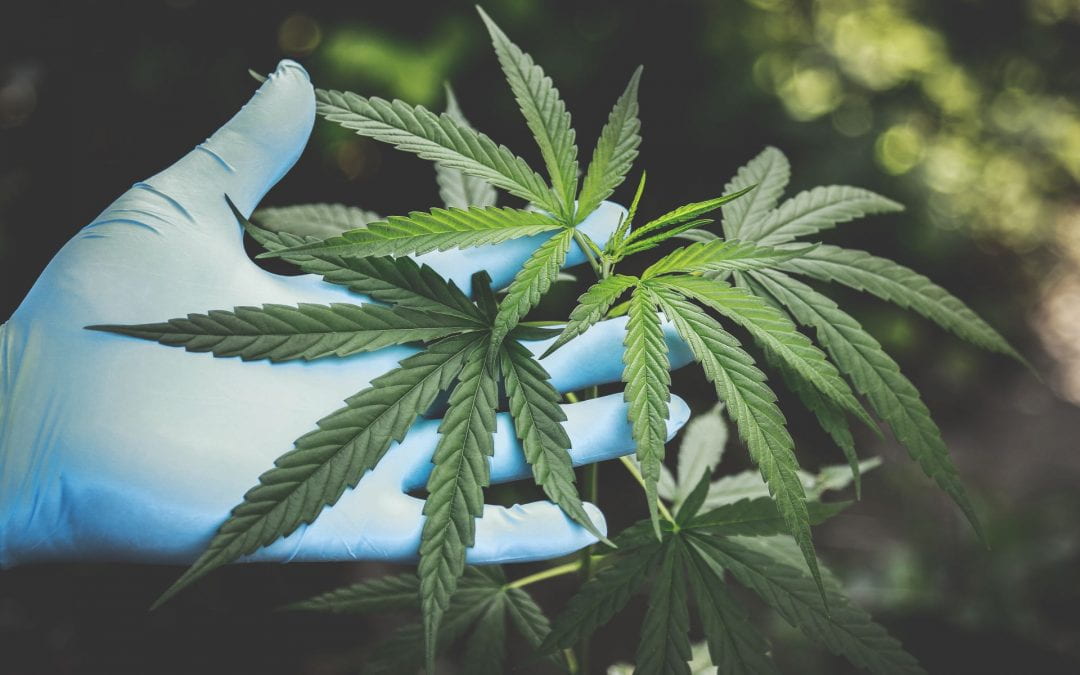
Burning Up: A Look at the Constitutional Rights of Medical Marijuana Patients Under Fire
By Justin F. Kissell
As states move to legalize medical marijuana, federal law prevents medical marijuana patients from buying or possessing firearms. This conflict infringes on the fundamental right to bear arms.
Continue Reading Burning Up: A Look at the Constitutional Rights of Medical Marijuana Patients Under Fire

Could We Be Any More Cramped? New Seat Designs Could Impact Travelers’ Health
By Sonya Sondhi
In recent years, air travelers have seen seats get progressively smaller and increasingly uncomfortable. A new seat design shown at the Paris Air Show has pushed the envelope once again, taking the definition of personal space to new heights. Continue Reading Could We Be Any More Cramped? New Seat Designs Could Impact Travelers’ Health

Conflicting Injunctions from U.S. Courts Threaten Women’s Access to Reproductive Healthcare
By Abigail Bird
As the Trump administration refuses to comply with an injunction barring enforcement of expanded religious exemptions for the Affordable Care Act’s contraceptive coverage mandate, the reproductive rights of women hang in the balance. Continue Reading Conflicting Injunctions from U.S. Courts Threaten Women’s Access to Reproductive Healthcare
